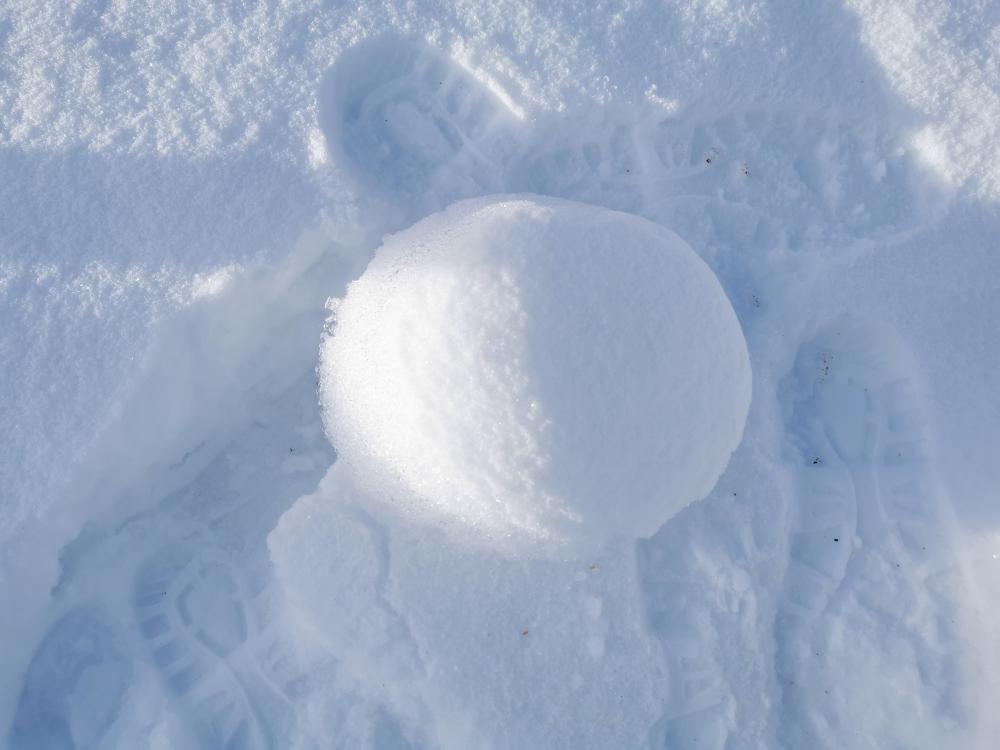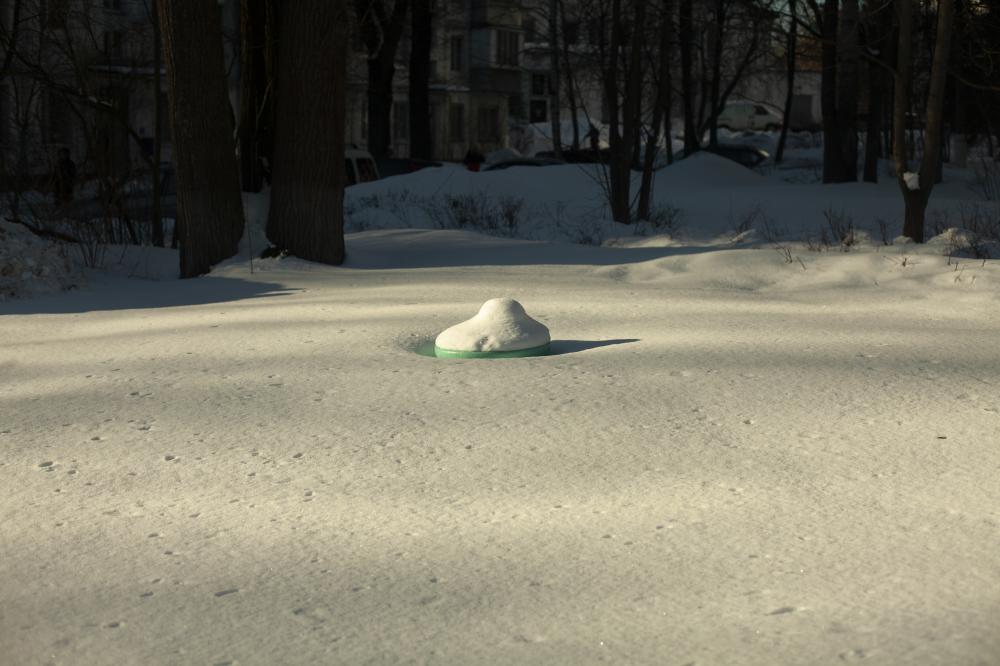Ice Melter

Understanding Ice Melters
When winter lays its icy grip across our pathways and driveways, the quick and efficient removal of ice becomes paramount to safety and accessibility. At Tellus Tru, we've embarked on a journey to redefine the approach to deicing, making it not just effective but environmentally friendly and safe for all. The heart of our mission is to provide solutions that protect without causing harm. Ice melter products are a central part of this mission, as they offer a proactive measure against the perils of slippery surfaces.
Exploring Safe Options
Why Choose Eco-Friendly Deicers?Our commitment to safety and environmental consciousness drives us to explore and recommend ice melters that are both effective and gentle on the earth. Traditional deicing salts, while effective, can pose risks to plant life, pets, and even the surfaces they're applied to. As a company vested in offering safer alternatives, we've delved into the science of ice melters to uncover options that deliver on promise without the collateral damage.
What Are The Alternatives?From calcium chloride to more innovative blends, the market offers a variety of ice melter choices. Each has its own set of benefits and limitations, but our focus has always been on products that strike a balance between efficiency and safety. For instance, magnesium chloride has gained popularity as a pet-friendly and plant-safe choice, reflecting our values of protection and mindfulness.
Effective Application Tips
Maximizing EfficiencyApplying ice melter is not just about scattering the substance and hoping for the best. It involves strategic placement, understanding the product's effective temperature range, and knowing when to reapply. Our experience has taught us that preemptive application before a snow event can significantly reduce accumulation and make subsequent removal efforts less labor-intensive.
Safety FirstWhile the goal is to melt ice, safeguarding the integrity of the area being treated is also critical. We've learned through our product development and testing that excessive use can lead to surface damage or pose risks to pets and wildlife if not chosen carefully. Therefore, we always advise a measured approach, respecting the manufacturer's guidelines on application rates and frequency.
The Human Touch
Amid the technical aspects of deicing, it's the human stories that resonate with us most. From the elderly couple who can now safely navigate their walkway, to the small business owner keeping their storefront accessible, the impact of a reliable ice melter extends beyond just melted snow and ice. It's about community, safety, and peace of mind. These stories drive our commitment to not only developing but also educating on the safest and most effective use of deicing products.
Environmental Considerations
Protecting Our PlanetThe environmental footprint of deicing practices cannot be ignored. Runoff from salt-based melters can seep into groundwater or find its way into nearby water bodies, posing a threat to aquatic life and water quality. In response, our research and development focus heavily on products that minimize these risks, advocating for solutions that serve our immediate needs without compromising the well-being of our planet.
Community ImpactOur efforts go beyond product development. By engaging with communities and sharing knowledge, we aim to inspire a collective shift towards more sustainable ice removal practices. Whether it's through local workshops, online forums, or direct conversations, we're committed to spreading awareness about the importance of choosing and using ice melters responsibly.
Choosing the right Ice Melter
Deciding on the right ice melter is a decision that weighs heavily on the specific needs of the area to be treated, the prevailing weather conditions, and the environmental and safety considerations of the user. At Tellus Tru, we've taken a stand not just to offer products, but to offer guidance, ensuring that when you reach for an ice melter, you're armed with the knowledge to make an informed choice that aligns with your values and needs.
Answering Common Questions
Can hot water be used as an ice melter?
While hot water can temporarily melt ice, its effects are short-lived, and it can lead to a rapid refreeze, potentially making the surface even more hazardous. We advocate for specialized products designed with specific melting agents that ensure safety and effectiveness over longer periods.
Is vinegar effective for melting ice?
Vinegar, when mixed with certain substances, can lower the freezing point of water, thus offering some deicing capabilities. However, its effectiveness and practicality pale in comparison to specifically formulated ice melters that are designed for safety, speed, and efficiency.
The Future of Ice Melters
As we look towards the future, the evolution of ice melter technology holds the promise of products that are increasingly effective, environmentally friendly, and safe for all users. Tellus Tru is at the forefront of this movement, continuously exploring and innovating to redefine what it means to tackle winter's challenges head-on. Join us on this journey, where every step is taken with consciousness, integrity, and an unwavering commitment to you and the planet.

What is the best thing to melt ice?
When it comes to melting ice, the "best" solution largely depends on the specific circumstances, including temperature, area to be treated, and environmental considerations. At Tellus Tru, we advocate for eco-friendly and pet-safe options like magnesium chloride and calcium magnesium acetate. They function effectively in a broad range of temperatures while minimizing harm to plant life, pets, and surfaces. These substances not only melt ice but do so in a way that aligns with our commitment to safety and environmental integrity. Remember, the key is not just to melt ice but to maintain safety and sustainability.
Which ice melter is best?
Deciding on the "best" ice melter involves weighing factors such as efficiency, environmental impact, pet safety, and cost. In our experience, products containing magnesium chloride strike a favorable balance. They work effectively down to temperatures of -13°F (-25°C), are less damaging to concrete and vegetation, and are safer around pets compared to traditional salt-based melters. However, it's essential to understand that what's best for one situation might not suit another perfectly. Tailoring your choice to your specific needs while considering these broader criteria will lead to the most satisfactory and safe outcomes.
What is in ice melter?
Ice melters can contain a variety of active ingredients, each with distinct properties and effects. Common compounds include sodium chloride (rock salt), magnesium chloride, calcium chloride, and calcium magnesium acetate, among others. Each ingredient has its effective temperature range and environmental impact. For example, calcium chloride works at lower temperatures than sodium chloride but can be more corrosive. At Tellus Tru, we focus on components that offer a balance of efficacy and environmental friendliness, prioritizing substances that reduce potential harm to ecosystems and urban infrastructure.
Can I pour hot water on my driveway to melt ice?
While pouring hot water on your driveway will melt ice temporarily, it's not a method we recommend. The immediate effect is satisfying, but it can quickly lead to refreezing, creating an even more treacherous ice layer. This method can also cause thermal shock to concrete surfaces, leading to damage over time. Instead, using a dedicated ice melter designed for the purpose will provide a safer, more effective, and longer-lasting solution. It's about balancing the short-term thrill of seeing ice melt quickly with the long-term goal of maintaining safety and protecting your property.
How do ice melters affect the environment, and what can we do to minimize the impact?
Ice melters, especially those based on rock salt (sodium chloride), can have significant environmental impacts. They can contaminate groundwater, harm vegetation, and endanger aquatic life when runoff enters water bodies. To minimize these effects, it's crucial to use products judiciously, following application guidelines closely to avoid overuse. Opting for eco-friendly alternatives like calcium magnesium acetate or magnesium chloride can also reduce harm. At Tellus Tru, we encourage the community to engage in sustainable deicing practices, such as proper storage and disposal of ice melter products and exploring non-chemical methods like sand for added traction. It's about making informed choices that serve our immediate needs without compromising the well-being of our planet.
Ice Melter Resources
- Environmental Protection Agency (EPA) - The EPA offers information on the environmental impact of deicing practices and provides guidance on choosing environmentally friendly ice melter products.
- Purdue University Extension - Purdue University Extension provides insights into the different types of ice melters available and their effectiveness in various conditions.
- University of Minnesota Extension - The University of Minnesota Extension offers tips on the safe and effective application of ice melters to prevent damage to surfaces and harm to pets and wildlife.